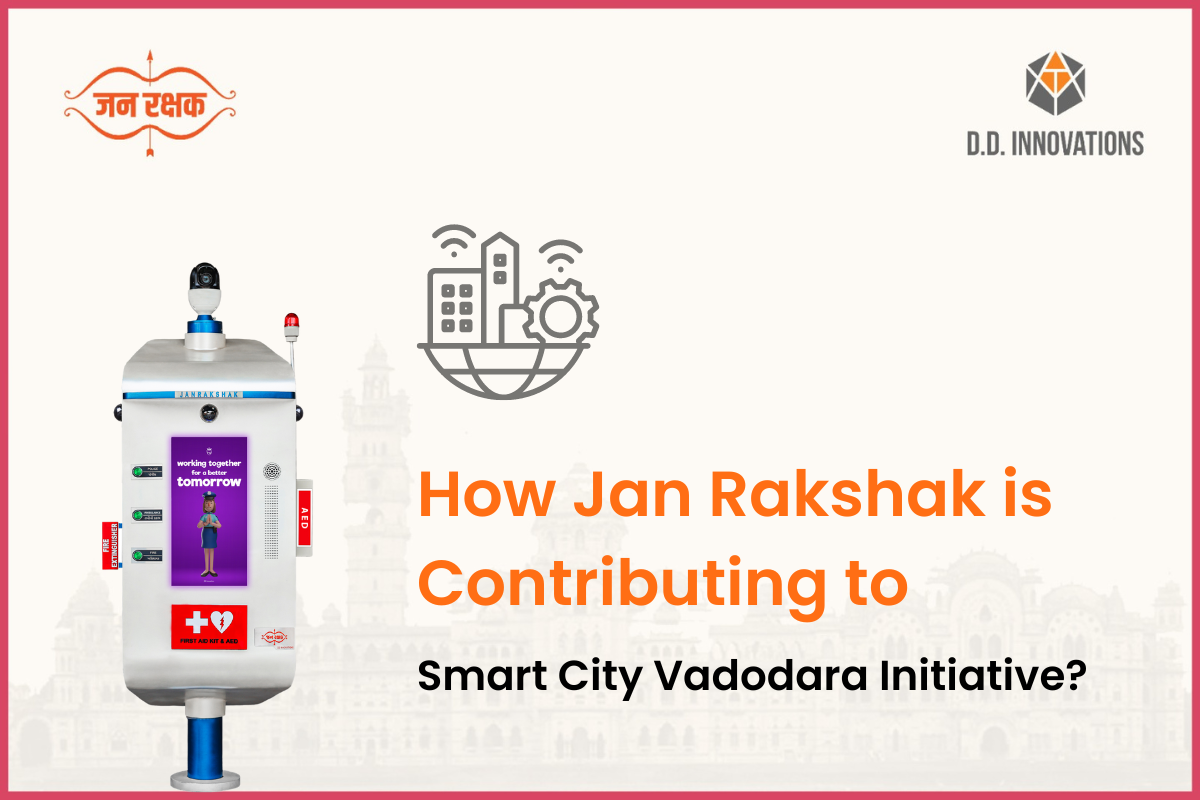Vadodara, on its path to becoming a leading smart city in India, is implementing innovative solutions to improve public safety, infrastructure, and overall citizen experience. One such initiative is Jan Rakshak, a network of safety kiosks providing instant access to emergency services and essential tools for citizens.
This blog explores how Jan Rakshak contributes to the Smart City Vadodara initiative and how it empowers citizens.
The Pillars of Smart Cities:
Smart cities are built on the foundation of several key pillars, including:
- Safety and Security: A secure environment is paramount for residents and businesses to thrive.
- Technology Integration: Smart technologies enhance efficiency, resource management, and communication within the city.
- Improved Citizen Services: Accessibility and responsiveness to citizen needs are crucial aspects of a smart city.
- Sustainability: Environmentally friendly practices and resource optimization are essential for long-term development.
How Jan Rakshak Aligns with Smart City Goals:
Jan Rakshak’s features directly contribute to several aspects of the Smart City Vadodara initiative:
- Enhanced Public Safety:
- One-Touch Emergency Response: Citizens can connect with police, ambulance, and fire brigade services with a single button press, minimizing response times in critical situations.
- 24/7 Surveillance: Jan Rakshak kiosks act as deterrents to crime and provide valuable footage for investigation purposes.
- Technology Integration:
- Networked System: The kiosks are interconnected, allowing for centralized monitoring and data collection, which can be used to identify crime patterns and optimize resource allocation.
- User-Friendly Interface: The kiosks are designed for ease of use, ensuring anyone can access emergency services regardless of technical expertise.
- Improved Citizen Services:
- Accessibility: Jan Rakshak provides a readily available safety net throughout the city, empowering citizens and promoting a sense of security.
- Multilingual Support: The kiosks can potentially offer multilingual support, ensuring inclusivity for all residents.
- Sustainability:
- Reduced Paperwork: By enabling electronic emergency reporting, Jan Rakshak contributes to a paperless system, promoting environmental sustainability.
- Efficient Resource Management: Faster emergency response times can potentially minimize resource wastage during interventions.
Beyond Emergency Response:
Jan Rakshak goes beyond just connecting citizens to emergency services. It offers additional features that further enhance public safety and well-being:
- First-aid Kits: These kits provide immediate medical attention for minor injuries until professional help arrives.
- Automated External Defibrillators (AEDs): AEDs can be lifesaving in cases of cardiac arrest by delivering an electrical shock to restore a normal heart rhythm.
- Fire Extinguishers: Citizens can use these extinguishers to tackle small blazes before they escalate.
The Road Ahead:
Jan Rakshak’s integration with the Smart City Vadodara initiative demonstrates a commitment to citizen safety and well-being. As the smart city initiative progresses, we can expect further integration of technology to enhance the functionalities of Jan Rakshak.
Conclusion:
Jan Rakshak is a shining example of how technology can be leveraged to create a safer and more empowered citizenry. Its alignment with the Smart City Vadodara initiative paves the way for a future where technology seamlessly integrates with public services, leading to a more secure and sustainable urban environment.


